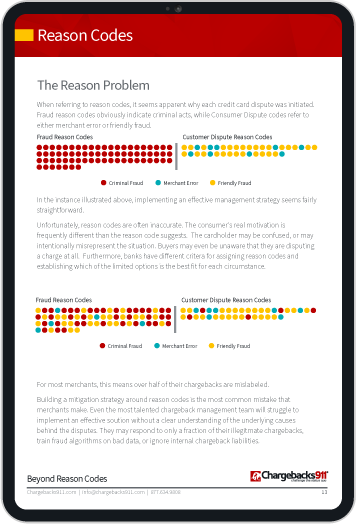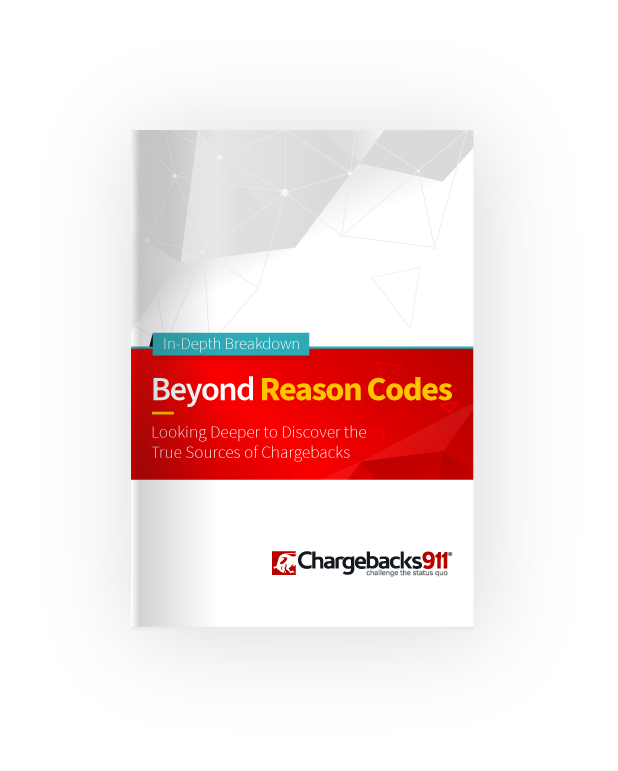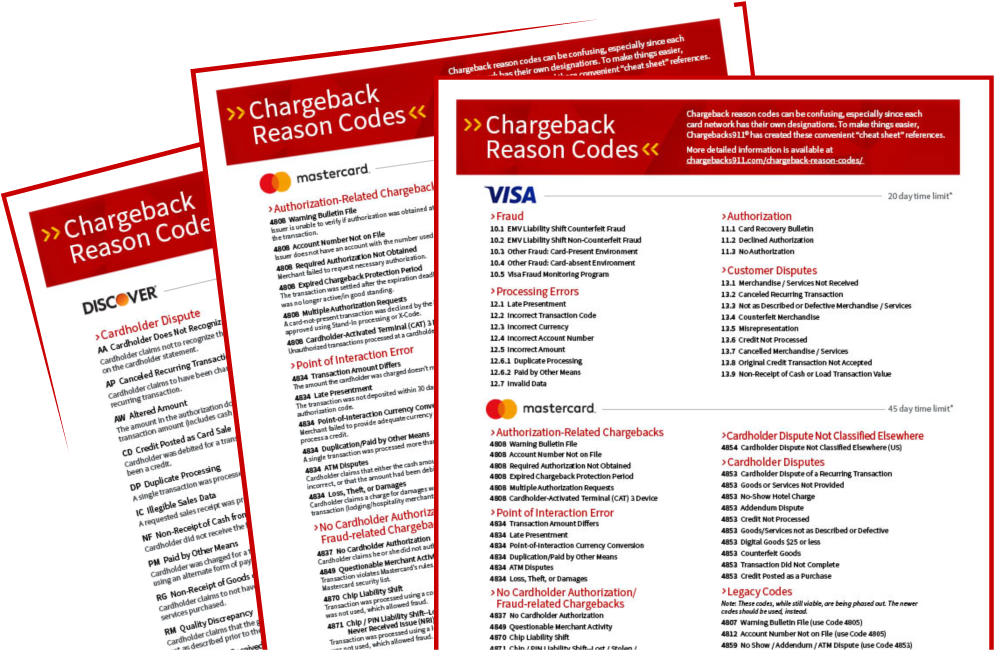Mastercard Reason Code 4853: No-Show Hotel Charge
Chargeback reason code 4853 No-Show Dispute is one of the numeric labels assigned by banks to each customer dispute, indicating the given reason for the claim. We say the given reason because it may or may not reflect the true reason.
Under certain circumstances, Mastercard may allow consumers to reverse a payment card transaction by filing a chargeback. Chargebacks were designed to be a “last-resort” for disagreements that cannot be resolved with the merchant. However, they’re more often used as a loophole to commit fraud.
Reason code 4853 indicates the broad category “Cardholder Dispute,” which in general means the cardholder disagrees with a transaction, and claims the merchant made a mistake. The code can be used in multiple specific situations, many of which had their own individual codes at one time. “No-show” chargebacks, for example, were formerly filed under legacy reason code 4859, a code no longer approved for active use.
When necessary, an additional message will be provided along with the reason code to inform the merchant which particular type of chargeback applies to the claim. It can get confusing, so in this post we’ll focus on disputes featuring a 4834 reason code claiming “No Show Hotel Charge.”
Should Merchants Worry About Reason Code 4853 Chargebacks?
Chargeback questions? We have answers. Click to learn more.

What Is an “No-Show” Dispute?
Chargeback reason code 4853 can be used to indicate cases involving hotels or other temporary lodging establishments where a customer claims that the hotel charged an undeserved fee to the cardholder’s bill. This can be the result of intentional merchant fraud, but it is more likely to be an honest mistake.
For a no-show reason code to apply to a transaction, the merchant must first participate in the Mastercard Guaranteed Reservations Program. Essentially, this means when cardholders guarantee their reservation using a Mastercard, the merchant is guaranteeing that the cardholder will have a room upon arrival. If the customer does not arrive at the expected date and time, the merchant may charge a “no-show” fee to the customer’s card.
Let’s assume that a merchant accepted a guaranteed reservation and subsequently charged the customer the fee. The cardholder may request a no-show chargeback if one of the following is true:
- The cardholder canceled the reservation within the allowed timeframe.
- The cardholder arrived and used the accommodations.
- The hotel had no room available, even if the merchant arranged for accommodations (at another hotel, for example).
- The no-show fee was higher than the rate quoted to the cardholder (note: only the difference between the two charges can be charged back).
- At the time of booking, the merchant failed to advise the cardholder that a no-show fee applied.
So, why would anyone participate in this program? Well, consumers can enjoy the benefit of a guaranteed room. But there are benefits for merchants as well.
Understanding the Mastercard Guaranteed Reservations Program
All lodging merchants who accept Mastercard are automatically enrolled in the Guaranteed Reservations Program. Merchants have the ability to create guarantee-reservation (or “No-Show”) transactions, but they are not required to do so.
However, if the merchant accepts a Guaranteed Reservation, they are agreeing to certain responsibilities. For example, they must keep a room available until check-out time on the day following the reservation, and inform the cardholder of the cancellation time and conditions prior to booking.
The merchant must also furnish the cardholder with a confirmation number for the reservation. If the reservation is cancelled, a cancellation number must be provided to the customer, too. While merchants may set a timeframe for cancellation (within limits), they are required to accept a cancellation from the cardholder when requested. If the cancellation falls outside of the agreed-upon timeframe, cardholders may be only be billed for one night of the room fee, plus any applicable tax.
These and other rules restrict the conditions for charging the no-show fee. However, the Guaranteed Reservations Program helps ensure that merchants aren’t punished for saving the room, either.
No-Show Disputes: Conditions
If the cardholder guarantees the room via Mastercard, but the hotel is unable to provide a room, the merchant must:
- Not bill the cardholder a no-show charge.
- Provide the cardholder with an option of taking accommodations at a different lodging establishment, which must be rated equal to, or better than, the reserved property.
- Ensure the cardholder is not charged more than the rate of the guaranteed stay.
- Provide (or arrange) complimentary transportation to the new location.
- If necessary, provide a complimentary call for the cardholder to tell others of the new location.
The maximum amount of time that can pass between the transaction processing date and the chargeback processing date is 120 calendar days.
Preventing No-Show Chargebacks
Obviously, if a business regularly receives chargebacks with a no-show hotel charge reason code, there’s a problem that needs to be addressed by the merchant. But as we alluded to earlier, a false reason code may be used to mask an attempt at fraud.
For example, it would be easy for a cardholder to claim that the no-show fee was not disclosed prior to the booking, or that the amount of the fee differed from what the merchant charged. It’s important for merchants to secure evidence to refute such claims, and challenge invalid chargebacks through the representment process.
That said, legitimate no-show chargebacks are the result of avoidable merchant errors, meaning they are 100% preventable. With care on the merchant’s part, the conditions that can trigger this chargeback situation should never arise. Preventative steps include:
- Acknowledge and fulfill all qualified cancellation requests immediately.
- Carefully explain all cancellation policies, including no-show fees.
- Have the cardholder agree to all terms prior to accepting the reservation.
- For merchants with online booking, clearly and prominently display cancellation policies.
- Request customers acknowledge terms (via initials, signature, or an online checkbox) prior to accepting the reservation.
- Educate staff on the proper way to process no-show fees in different situations.
Vigilance and training are the keys to preventing no-show disputes in the future.
Chargeback Prevention: A Wider View
While merchants can take many steps to help prevent legitimate claims, fraudulent chargebacks are another matter: friendly fraud is post-transactional in nature, meaning there’s no sure way to identify it beforehand. Merchants can do everything “right” yet still have customer dispute filed against them.
So while it’s generally more efficient to take a proactive stance when it comes to chargeback management, a truly effective strategy must encompass both prevention and disputing cases of friendly fraud.
Chargebacks911® can help your business manage all aspects of chargeback reason codes, with proprietary technologies and experience-based expertise. Contact us today for a free ROI analysis to learn how much more you could save.










